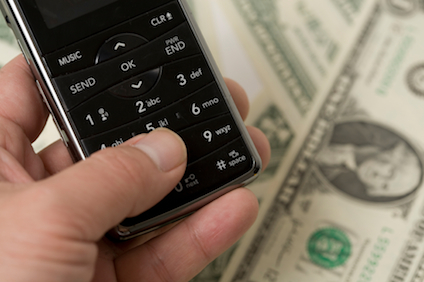Wireless tax rates have reached all-time highs. Almost half the states nationwide now impose a wireless tax above 10 percent (the national average is more than 16.3 percent). Legislative effort to combat these high tax rates may be taking another step forward.
On July 12, Senator Ron Wyden (D-OR) filed S. 543, ‘The Wireless Tax Fairness Act,’ as an Amendment to S. 2237, the ‘Small Business Jobs and Tax Relief Act.’ The Wireless Tax Fairness Act, is a legislative proposal that would put a moratorium on discriminatory state wireless phone and data service tax increases.
 John Nothdurft, Director of Government Relations at The Heartland Institute argues that The Wireless Tax Fairness Act is a necessary step towards encouraging wireless expansion and ending a discriminatory tax targeted on one industry. “Wireless taxes on cell phones, tablets, and other devices are at an all-time high and are hindering the expansion of these products to lower-income consumers who could enjoy their benefits,” he said.
John Nothdurft, Director of Government Relations at The Heartland Institute argues that The Wireless Tax Fairness Act is a necessary step towards encouraging wireless expansion and ending a discriminatory tax targeted on one industry. “Wireless taxes on cell phones, tablets, and other devices are at an all-time high and are hindering the expansion of these products to lower-income consumers who could enjoy their benefits,” he said.
“The Wireless Tax Fairness Act is a big step towards protecting taxpayers from these discriminatory taxes for years to come,” Nothdurft added. “There is no legitimate reason that the combined tax rate on mobile devices should be twice as high as the tax on other goods and services. These discriminatory taxes will hinder the growth of an industry that is on the front lines of innovation and job creation.”
Wireless taxes in many states have added an unnecessary burden to consumers, comments Bruce Edward Walker, former research fellow on telecom and technology policy at The Heartland Institute. “The real ‘cramming’ of hidden costs in wireless bills are the combined federal, state, and local taxes that are double the taxes consumers pay for other goods and services. In some locations such as Nebraska and Washington, these taxes exceed 20 percent of the total bill, which is more than the cost of adding an additional phone line.”
Wireless costs are more important today because cell phones have become the primary line of communication for many homes, replacing landlines. Walker argues that the burdensome taxes could result in less overall wireless phone usage, including in times of emergency.
“Now that most households have cancelled land line phone service for the convenience of wireless phones, the average tax surcharge of 16.9 percent is onerous for low-income consumers who rely solely on cell phones for emergency purposes,” Walker said. “For the rest of the population and businesses also gouged by these taxes, it’s a burdensome nuisance that, unchecked, will result in far less use of wireless phones in the future.”
MyWireless.org, a national nonpartisan, non-profit consumer advocacy organization fighting against unfair wireless taxes and fees, argues that the bill has both bipartisan legislative and consumer support. In their Annual Consumer Survey, MyWireless.org found that 80 percent of respondents support this measure, this included 83% of African Americans and 85 percentof Hispanics surveyed.
In addition the Wireless Tax Fairness Act does not impact the revenue of state and local according to the Congressional Budget Office. Many state and local organizations, including civil rights groups, tax groups, consumer groups, technology organizations and companies, and small business owners have voiced their support of the bill.
High wireless taxes drag down both consumers and the wireless market, deterring innovation and infrastructure improvements, while disproportionately affecting minority and low-income populations. The Wireless Tax Fairness Act and the moratorium on discriminatory tax hike it implements would be a boon for the industry and consumers, encouraging economic growth while protecting taxpayers.





